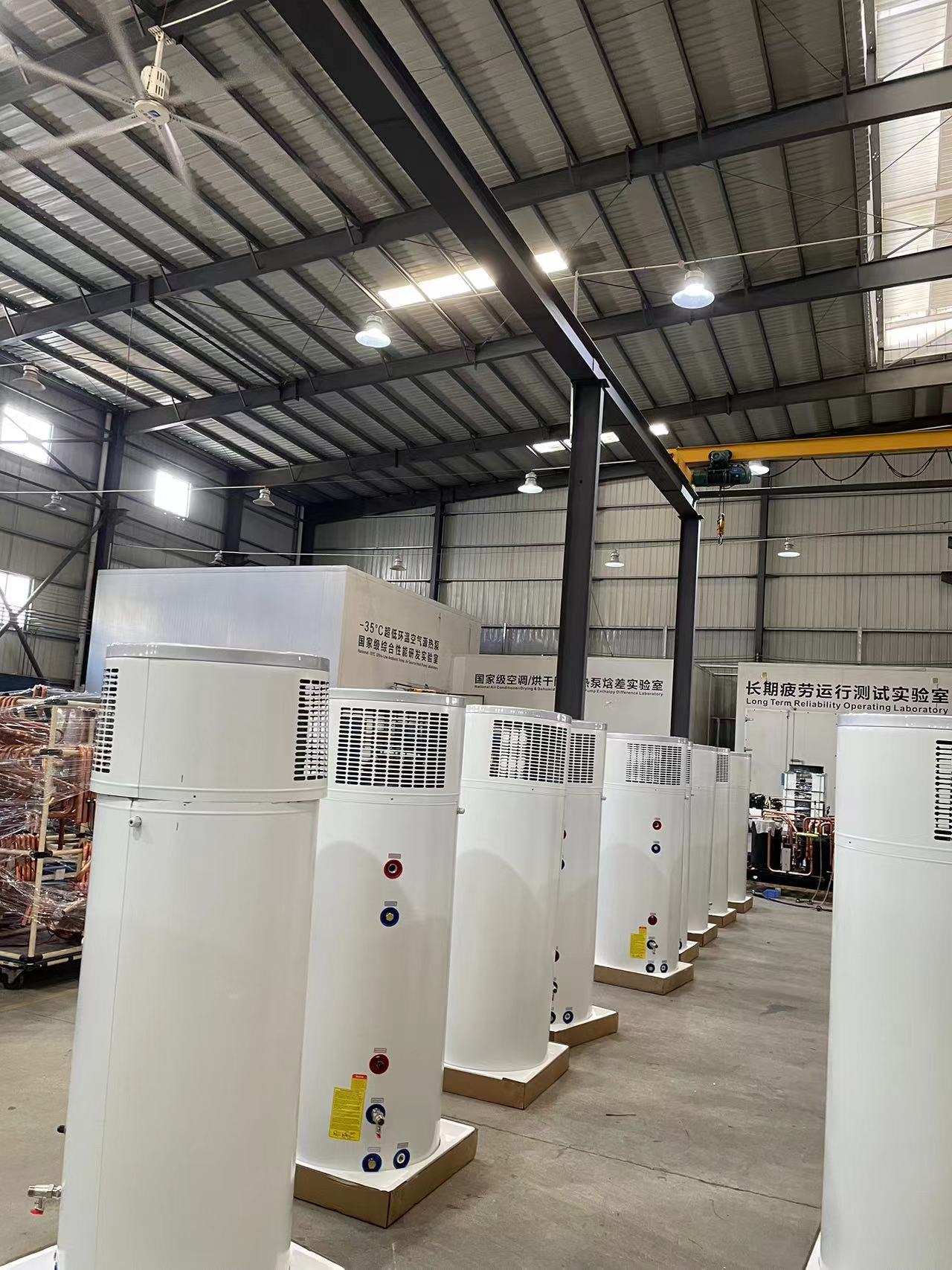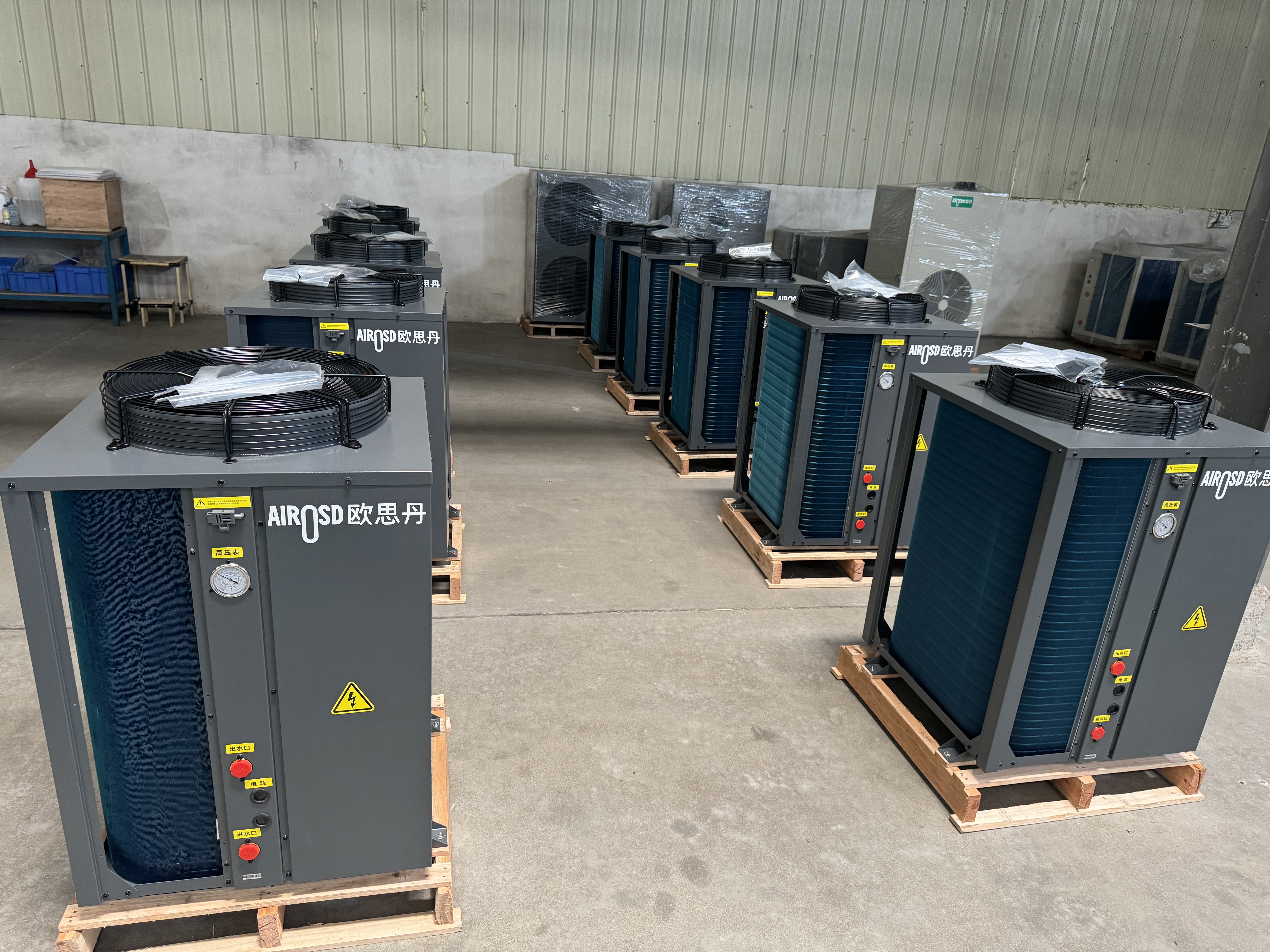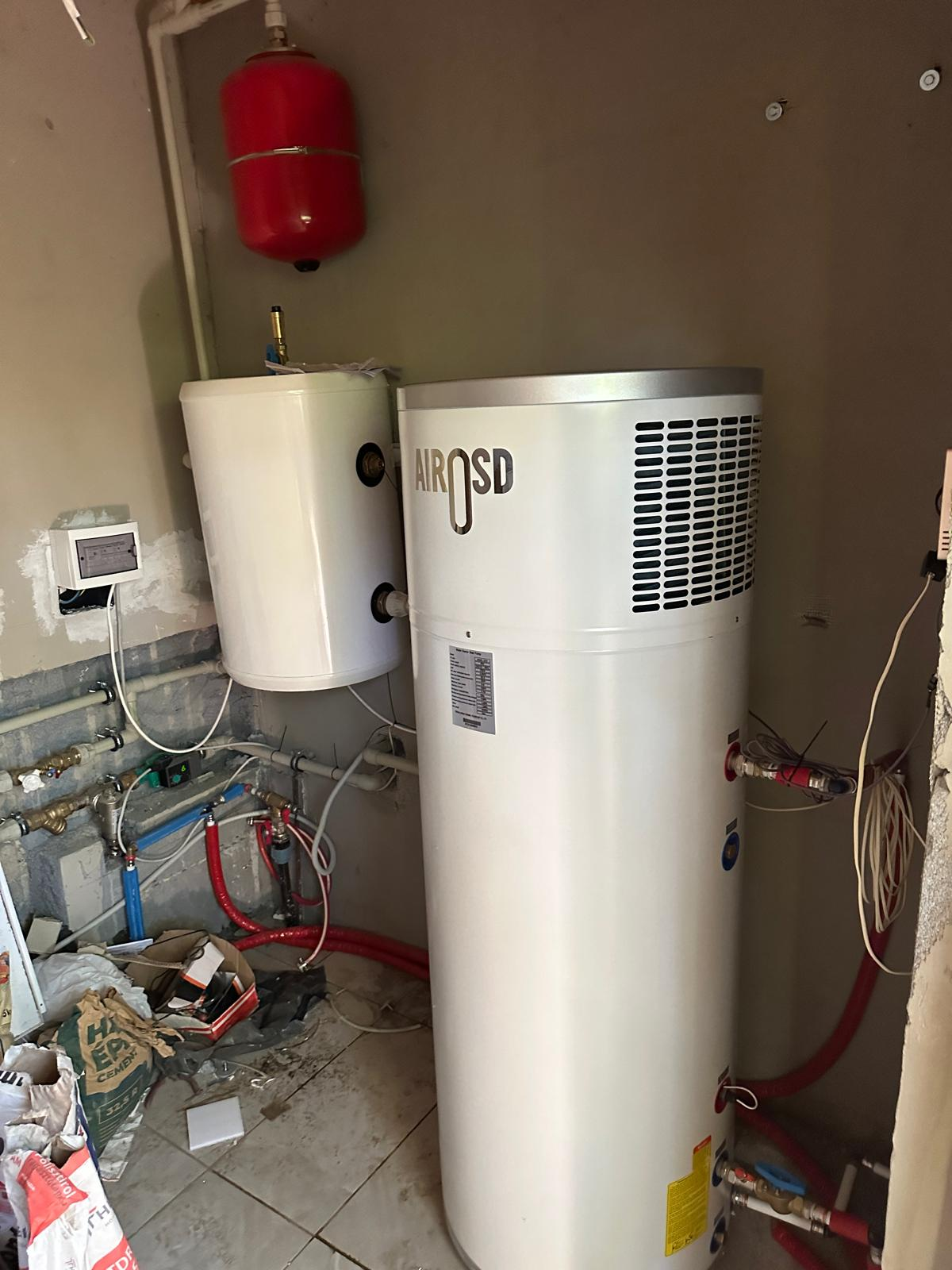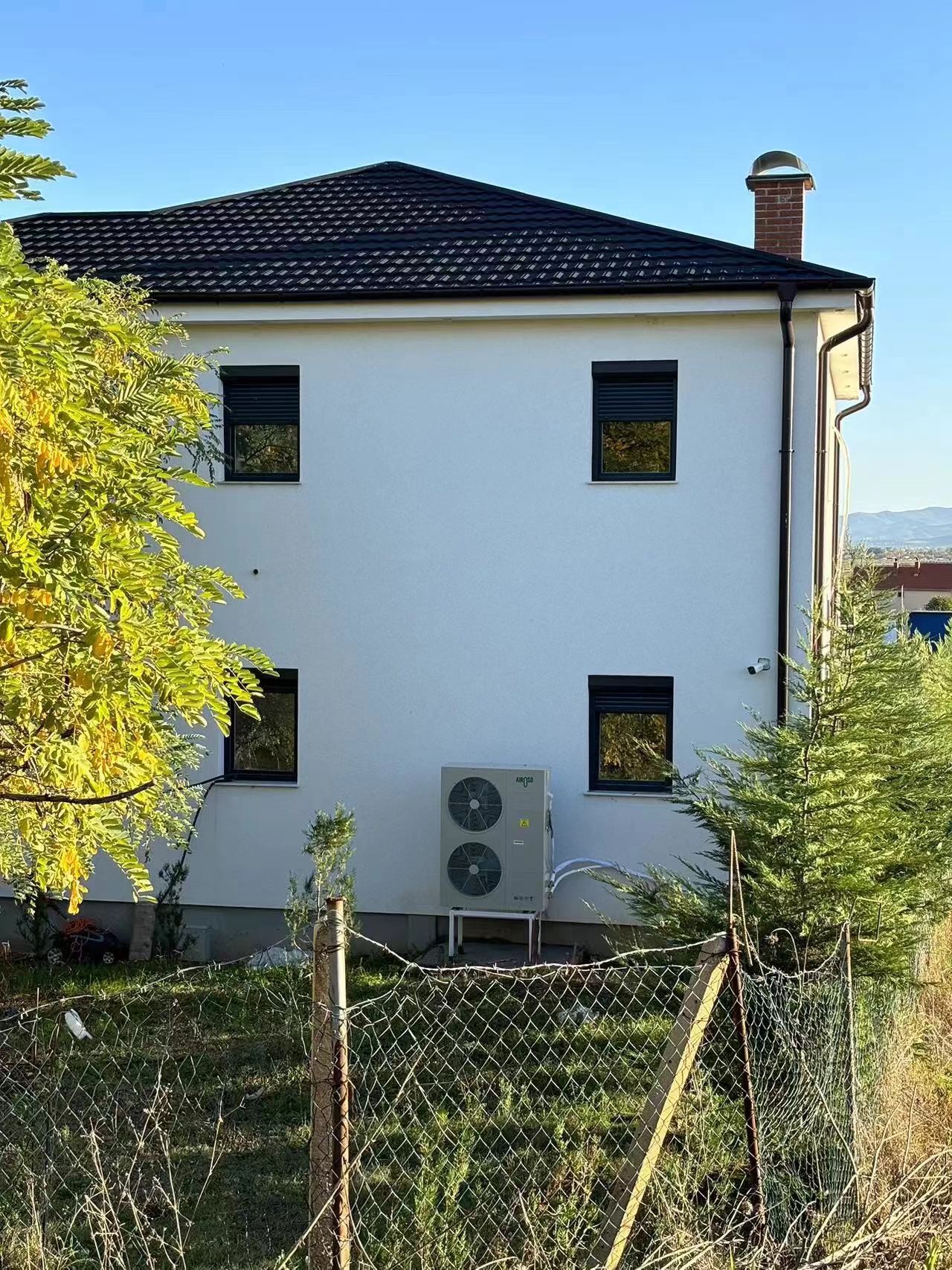I. Definition and Significance of Domestic Hot Water (DHW)
Domestic hot water plays a vital role in both residential and commercial environments. A domestic water heat pump often provides this hot water through an energy-efficient cycle that moves heat from the environment into the water. In modern life, the continuous, safe, and efficient supply of hot water affects comfort and quality of life. Whether for bathing, hand washing, kitchen cleaning, or sterilization, reliable hot water is essential. In some regions or seasons, hot water can also integrate with underfloor heating. When a home hot water heat pump is used for DHW, the system’s stability, energy efficiency, and safety directly impact user experience, energy costs, environmental footprint, and overall building performance.
II. Why DHW Systems Are Valuable
-
Enhanced Comfort
A stable hot water supply significantly improves daily routines. An efficient Heat pump water heater ensures that warm showers and cleaning tasks remain reliable even during cold spells. In commercial settings—hotels, hospitals, schools—the right hot water pump system must respond quickly to peaks in demand, ensuring guests or residents never run short. -
Health and Hygiene
Hot water naturally aids sterilization and disinfection. A properly designed domestic water heat pump maintains temperatures that inhibit bacterial growth, especially important in kitchens and bathrooms. Facilities relying on a home hot water heat pump or larger units see improved hygiene outcomes with consistent temperature control. -
Energy Saving & Emission Reduction
Traditional electric resistance or gas heaters often consume large energy amounts, leading to higher carbon emissions. By adopting a Heat pump water heater or integrated hot water pump system, one can transfer 3–5 times more heat energy per unit electricity compared to resistance heating. Over time, the operating cost savings and reduced carbon footprint become substantial, aligning with sustainability targets. -
Flexible Application Scenarios
Modern DHW can integrate with central heating or other HVAC components. For instance, an air pump water heater may supply both space heating and hot water, maximizing equipment utilization. In commercial buildings with fluctuating usage, the chosen domestic water heat pump must support rapid response and capacity buffering through storage tanks or smart control. -
Cost and Return on Investment
While initial investment for a home hot water heat pump or larger Heat pump water heater units may be higher than conventional heaters, long-term operational savings often offset upfront costs. As energy prices rise or carbon policies tighten, systems using a hot water pump system with efficient heat transfer prove increasingly attractive. Incentives and subsidies for installing air pump water heater technologies further improve ROI. -

III. Application of Heat Pump Technology in DHW
A domestic water heat pump relies on the familiar cycle of heat absorption, compression, heat release, and expansion. Key steps:
-
Heat Source Absorption: The unit extracts low-grade heat from ambient air, groundwater, or ground. An air pump water heater uses outdoor air, while other DHW units might leverage water or ground sources.
-
Compression and Temperature Rise: The compressor elevates refrigerant temperature. In a Heat pump water heater, this results in high-temperature heat that can be transferred to the water.
-
Heat Release to Water: The condenser releases heat into the hot water loop. A home hot water heat pump thus supplies showers and taps efficiently.
-
Cycle Continuation: After expansion and cooling, the refrigerant repeats the process. Well-designed hot water pump system controls and regulates this cycle to match demand, maintaining performance and efficiency.
Compared to electric resistance heating, a domestic water heat pump can achieve a COP (Coefficient of Performance) of 3 or more, meaning each unit of electricity yields roughly 3 units of heat. Such Heat pump water heater systems thus provide pronounced energy efficiency advantages.

IV. Advantages of Heat Pump DHW Systems
-
High COP and Operating Efficiency
A Heat pump water heater typically offers COP > 3; in some conditions, it may exceed 4. This means a home hot water heat pump consumes far less electricity than resistance heaters. Similarly, a well-sized hot water pump system reduces utility bills and emissions. -
Year-Round Stable Operation
An air pump water heater performs well in mild or moderately low temperatures. For colder climates, water-source or ground-source options maintain stability. Whether using a domestic water heat pump in milder zones or more robust configurations elsewhere, DHW supply remains reliable throughout the year. -
Multi-Mode Integration
Advanced installations share components between space heating and DHW. A combined home hot water heat pump and heating coil arrangement can switch modes seasonally. In summer, waste heat recovery from the cycle can aid cooling or preheat domestic water, maximizing return on investment in a single Heat pump water heater package. -
Smart Control & Maintenance
Modern air pump water heater systems often include remote monitoring, fault diagnosis, and adaptive control. A domestic water heat pump can modulate compressor speed or pump flow according to usage patterns, balancing comfort and savings. A reliable hot water pump system also includes diagnostics to alert maintenance before issues escalate. -
Environmental Friendliness & Policy Incentives
By using ambient heat rather than direct combustion, a Heat pump water heater eliminates on-site emissions. Governments frequently provide rebates for installing a home hot water heat pump or related DHW systems. These incentives, combined with long-term savings, encourage adoption of efficient domestic water heat pump solutions. -

V. Application Scenarios and Scalable Design
-
Residential Use
In single-family homes or apartments, a small air pump water heater or integrated Heat pump water heater meets bathing and kitchen hot water needs. In colder regions, auxiliary electric elements or solar preheat can complement the domestic water heat pump, ensuring reliability even during extreme cold. -
Commercial & Public Buildings
Hotels, schools, and hospitals face variable peak demands. A larger hot water pump system paired with storage tanks evens out peaks. Designing such a home hot water heat pump for communal settings involves evaluating peak load, storage volume, and pump sizing to ensure continuous service. -
Industrial & Process Hot Water
Some processes require low- to medium-temperature water. Replacing boilers or electric heaters with a Heat pump water heater can boost efficiency and cut emissions. Cascading multiple domestic water heat pump units or adding secondary pumps creates flexible configurations to match process requirements. -
District or Centralized Supply
In district energy schemes, linking several air pump water heater modules or larger ground-source configurations allows centralized DHW and low-temperature heating. Integrating waste heat or renewable inputs with a robust hot water pump system enhances flexibility, resilience, and overall system efficiency.
VI. Economic and Environmental Benefit Assessment
When evaluating a domestic water heat pump installation, consider:
-
Operating Costs: Based on electricity prices and system COP. A Heat pump water heater with COP > 3 reduces electricity use significantly.
-
Initial Investment: Costs for the home hot water heat pump unit, storage tank, piping, controls. Larger hot water pump system projects may have higher CAPEX but better economies of scale.
-
Policy Subsidies & Incentives: Many regions support air pump water heater installations with rebates or financing, improving payback.
-
Maintenance Costs: Compared to gas or electric resistance systems, a domestic water heat pump generally has moderate service needs but delivers ongoing savings.
-
Life-Cycle Analysis: Consider equipment lifespan, performance degradation, residual value. A well-maintained Heat pump water heater often outlives simpler heaters, providing extended benefits.
-
Environmental Benefits: Reduced carbon emissions and lower fossil fuel consumption align with sustainability goals when deploying a home hot water heat pump solution.
Case studies repeatedly show that, especially under rising energy prices or carbon pricing regimes, a hot water pump system based on heat pump technology yields clear economic and environmental returns over its lifetime.
Conclusion
Domestic hot water is fundamental to comfort, hygiene, and flexible building operations. Integrating efficient heat pump technology—whether via an air pump water heater, a Heat pump water heater, or a comprehensive hot water pump system—brings significant energy savings, reduced emissions, and improved performance. A well-designed home hot water heat pump solution, combined with smart controls and proper maintenance, can serve homes, commercial sites, industrial processes, and district networks. Policy incentives further accelerate adoption, making a home hot water heat pump an attractive choice today. By understanding DHW value and harnessing heat pump advantages, stakeholders can build more sustainable, efficient hot water systems that meet present and future needs.



